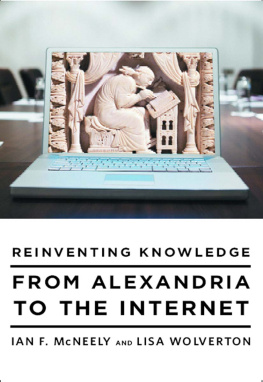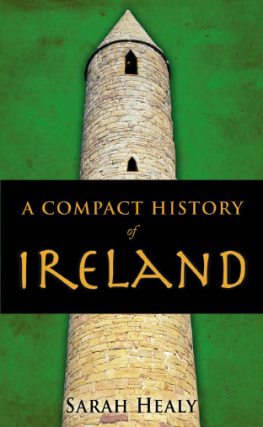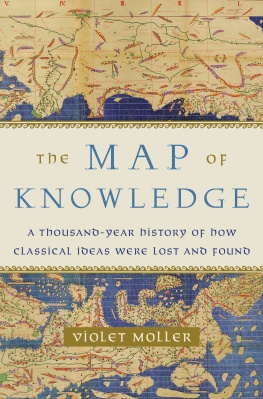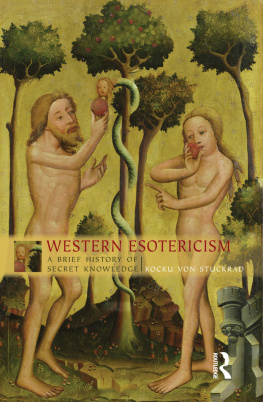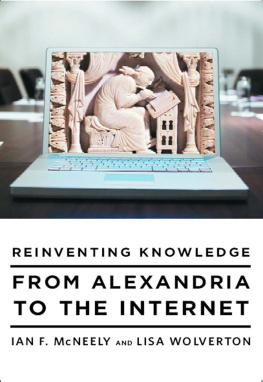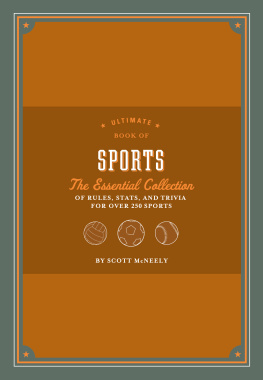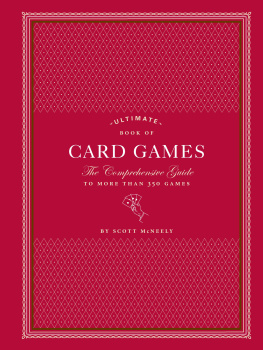McNeely Ian F - Reinventing knowledge : from Alexandria to the Internet
Here you can read online McNeely Ian F - Reinventing knowledge : from Alexandria to the Internet full text of the book (entire story) in english for free. Download pdf and epub, get meaning, cover and reviews about this ebook. City: Westliche Welt, year: 2008, publisher: W. W. Norton & Company, genre: Religion. Description of the work, (preface) as well as reviews are available. Best literature library LitArk.com created for fans of good reading and offers a wide selection of genres:
Romance novel
Science fiction
Adventure
Detective
Science
History
Home and family
Prose
Art
Politics
Computer
Non-fiction
Religion
Business
Children
Humor
Choose a favorite category and find really read worthwhile books. Enjoy immersion in the world of imagination, feel the emotions of the characters or learn something new for yourself, make an fascinating discovery.
- Book:Reinventing knowledge : from Alexandria to the Internet
- Author:
- Publisher:W. W. Norton & Company
- Genre:
- Year:2008
- City:Westliche Welt
- Rating:3 / 5
- Favourites:Add to favourites
- Your mark:
- 60
- 1
- 2
- 3
- 4
- 5
Reinventing knowledge : from Alexandria to the Internet: summary, description and annotation
We offer to read an annotation, description, summary or preface (depends on what the author of the book "Reinventing knowledge : from Alexandria to the Internet" wrote himself). If you haven't found the necessary information about the book — write in the comments, we will try to find it.
Abstract: It has the power to wrench familiar aspects of history into new and surprising shapes.-Laura Miller, Salon Read more...
Reinventing knowledge : from Alexandria to the Internet — read online for free the complete book (whole text) full work
Below is the text of the book, divided by pages. System saving the place of the last page read, allows you to conveniently read the book "Reinventing knowledge : from Alexandria to the Internet" online for free, without having to search again every time where you left off. Put a bookmark, and you can go to the page where you finished reading at any time.
Font size:
Interval:
Bookmark:
The Emancipation of Writing: German Civil Society in the Making, 1790s1820s
Medicine on a Grand Scale: Rudolf Virchow, Liberalism, and the Public Health
A LSO BY L ISA W OLVERTON
Hastening Toward Prague: Power and Society in the Medieval Czech Lands
Cosmas of Prague, Chronicle of the Czechs (translator)
From Alexandria to the Internet
WITH LISA WOLVERTON

W. W. NORTON & COMPANY
New York London
Frontispiece: Western and non-Western knowledge systems in contact. Charles DOyly, A European Gentleman with His Moonshee, or Native Professor of Languages. From Thomas Williamson, The European in India (1813), courtesy of the Special Collections Library, University of Michigan.
Copyright 2008 by Ian F. McNeely and Lisa Wolverton
All rights reserved
First Edition
For information about permission to reproduce selections from this book, write to Permissions, W. W. Norton & Company, Inc., 500 Fifth Avenue, New York, NY 10110
Production manager: Anna Oler
Library of Congress Cataloging-in-Publication Data
McNeely, Ian F.
Reinventing knowledge: from Alexandria to the Interne /Ian F. McNeely, Lisa Wolverton.1st ed.
p. cm.
Includes bibliographical references.
ISBN: 978-0-393-07033-0
1. Intellectual lifeHistory. 2. Learning and scholarshipHistory. 3. Civilization, WesternHistory. 4. Civilization, ModernHistory. I. Wolverton, Lisa, II. Title.
CB358.M37 2008
909dc22 200801900
W. W. Norton & Company, Inc.
500 Fifth Avenue, New York, N.Y. 10110
www.wwnorton.com
W. W. Norton & Company Ltd.
Castle House, 75/76 Wells Street, London W1T 3QT
To Jing and Margot
I MAGINE PUTTING the entirety of knowledge on the World Wide Web. Every book and every article from every branch of study, every manuscript and every artifact from every ancient culture, every painting and every musical recording, every DNA base-pair sequence and microchip blueprint: everything we call knowledge would be faithfully digitized, universally accessible, completely indexed, and easily searchable. This is no longer just a science fiction fantasy but potentially a reality for Internet behemoths like Google, which is already busy scanning the contents of some of the worlds largest libraries.
Now consider an alternative project, one dreamed up by a different group of cyberspace visionaries: a 10,000-Year Library, whose aim is to preserve knowledge for the distant future rather than make it instantaneously available in the present. This project would allow us to send mail to the future and (when we get there) receive it from the past, to store time capsules and remind us when to open them, and to stockpile handbooks for reconstructing civilization in the event of global catastrophe. The 10,000-Year Library is not a projection of technological confidence but a recognition of an Achilles heel. Its aim is to make us mindful of time in a way that our fast-paced society has forgotten. As some see it, the current information age threatens to make knowledge as ephemeral as an electronic pulse flitting through a fiber-optic cable.
We are living through one of the recurring periods in world history when far-reaching changes in economics, culture, and technology raise basic questions about the production, preservation, and transmission of knowledge. How do we adapt to vastly new circumstances to ensure that we can reproduce ourselves as a culture? What new institutions will we need to organize and transmit the totality of our knowledge? Are conventional libraries obsolete? How must the traditional university change? Can we continue to expect that scientific advances will improve our lives? What will digital media do to the production and distribution of knowledge in words and images?
In this book, we ask what light history can shed on these questions. But instead of worrying about where knowledge is headed in the future, we want to recall the drama and dynamism surrounding the pursuit of knowledge in the past. Instead of chronicling the growth of an educational system about which many are all too complacent, we want to convey how different and exciting and even dangerous the life of the mind could be for those confronting similar upheavals hundreds, even thousands of years ago. Before the age of multibillion-dollar university endowments, high-profile government labs, digital media, and wireless broadband, scholars were pioneers and renegades, and knowledge was a hard-won treasure. Everything new they learned was in danger of being lost and forgotten, whether through the hostility of those who feared new ideas or, more insidiously, through the simple neglect of those unwilling to organize and preserve a collective civilizational memory. Today, as we again face the daunting task of organizing all our knowledge, we would do well to study the example of those who showed an equal boldness to do so under far more adverse conditions.
This story includes a rich array of events and characters, from the medieval Christian monks who devised schemes to preserve knowledge as the Roman Empire crumbled around them to the scholars who set up an international Republic of Letters to unify early modern Europe as it was being torn apart by Protestants and Catholics at war. It includes Peter Abelard, the arrogant medieval logician who tangled with his masters, seduced his star pupil, Heloise, and wound up watching his books burn and suffering castration at the hands of his lovers uncle. And it includes the public and private struggles of Marie Curie, one of the first women scientists, who literally poisoned herself to death with radiation to explore the structure of the atom.
One of the unlikeliest results of the efforts of these men and women, and many others, is a body of knowledge common to all who live, work, and study in the so-called Western world, and increasingly elsewhere as well. Medieval theologians like Abelard and atomic physicists like Curie had very different reasons for pursuing knowledgeto know God, to unveil the secrets of natureand yet both contributed to what is often deemed the Western intellectual tradition and thus to the story we have to tell in this book. We would argue that the West itself is better defined by its institutions for organizing knowledge than as a set of cultural values or a region of the globe. Imagine a group that includes ancient Greek shepherds, French aristocrats, Soviet apparatchiks, Californian commuters, and perhaps even students at the University of Malaya in Kuala Lumpur. These westerners differ radically in language, ethnicity, and lifestyle. Historically they have been concentrated in Europe, but they have since spread to its colonies and beyond, all over the world. Most now subscribe to the so-called Western values of democracy, secularism, science, and individualismbut others have endorsed the exact opposites. What they chiefly share is a common intellectual heritage. But how can that heritage be defined? And where is it heading? If we can understand where it came from, perhaps we can make educated guesses about where it is going.
This book attempts precisely that. It traces the production, preservation, and transmission of everything deemed worth knowing in what has become the Western tradition. Such knowledge comprises all the subjects debated in Platos Academy, from law and politics to love and poetry, as well as everything that has since been added toand subtracted fromthis list. This book is not a history of philosophy, though it engages with the philosophical ideas that animate our educational practices. Nor is it a history of education, though it argues that the way knowledge is conveyed from generation to generation is inseparable from the content of that knowledge. Most obviously, it hardly touches on informal knowledge, the type of knowledge we get from reading a newspaper, fixing a motorcycle, parenting a child, or creating a work of art. Formal knowledge, the kind organized by institutions by and for the wider public world, is our province. Our approach is necessarily selective, even as it aspires to encyclopedic breadth. We take examples from Christian theology and nuclear physics, Homeric Greek and corporate law, the mapping of continents and the study of the mind.
Font size:
Interval:
Bookmark:
Similar books «Reinventing knowledge : from Alexandria to the Internet»
Look at similar books to Reinventing knowledge : from Alexandria to the Internet. We have selected literature similar in name and meaning in the hope of providing readers with more options to find new, interesting, not yet read works.
Discussion, reviews of the book Reinventing knowledge : from Alexandria to the Internet and just readers' own opinions. Leave your comments, write what you think about the work, its meaning or the main characters. Specify what exactly you liked and what you didn't like, and why you think so.

